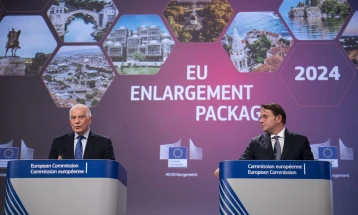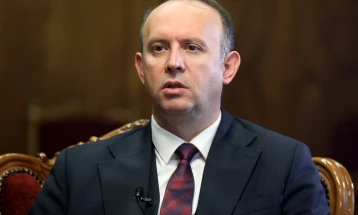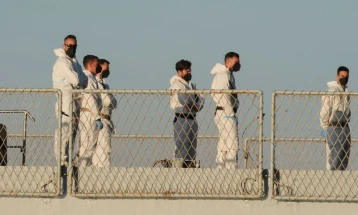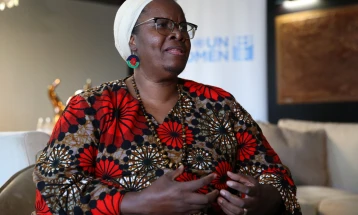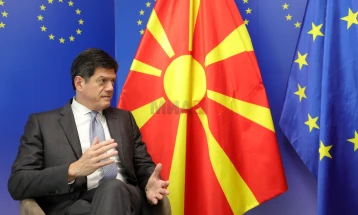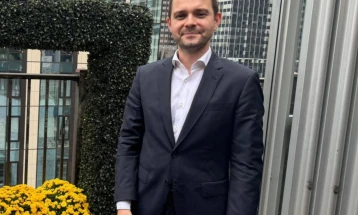EU struggles to deliver on military aid promised to Ukraine
- Plans to increase EU spending to help Ukraine defend itself against Russian aggression have stalled because of reluctance at EU level to commit to more funds. EU foreign policy chief Josep Borrell remains optimistic, saying it is up to member states to mobilise their industries if the EU is to keep its promise to deliver a million rounds of ammunition to Ukraine by next spring.
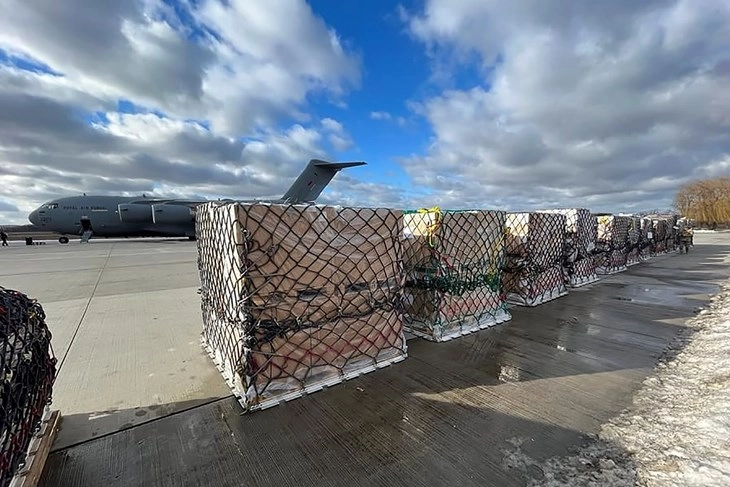
20 September 2023
by AFP, Agerpres, ATA, BTA, dpa, EFE, MIA, TASR | 17.Nov 2023 | Key Story
Plans to increase EU spending to help Ukraine defend itself against Russian aggression have stalled because of reluctance at EU level to commit to more funds. EU foreign policy chief Josep Borrell remains optimistic, saying it is up to member states to mobilise their industries if the EU is to keep its promise to deliver a million rounds of ammunition to Ukraine by next spring.
The European Union may fail to meet its objective of delivering one million artillery shells and missiles to Ukraine in the period of one year, which ends in March 2024. This comes despite efforts to increase production capacity and contracts with the arms industry. At a meeting of the bloc’s defence ministers on Tuesday, European officials took stock of the military support they have given and pledged to Ukraine to defend itself from the Russian invasion.
“The 1-million target will not be reached, we have to assume that,” said German Defence Minister Boris Pistorius. The voices that had warned from the outset that the goal was unrealistic were now unfortunately right, he said.
The Union’s struggles to make good on promised deliveries come as opposition in the United States Congress has thrown doubt on Washington’s ability to sustain supplies. The pessimistic assessment also occurs at a bleak time for Ukraine after its counter-offensive failed to regain territory and as Israel’s war with Hamas appears to have diverted attention of its key allies.
EU states had previously decided to provide Ukraine with a million howitzer rounds desperately needed to support the country in its defence against Russia. So far, EU nations have only managed to provide 300,000 rounds from their existing stocks.
Since the Russian invasion of Ukraine in February 2022, Western countries have delivered a wide range of weapons to Kyiv, depending on the developments on the battlefield. Brussels says that together with EU member states it has organised military support worth 27 billion Euro to Ukraine since the beginning of the war – but a plan to provide guaranteed long-term support for Kyiv has stumbled.

New aid at EU level appears controversial
While most of the bloc’s member states say they are ready to support Ukraine for the long haul, some countries, like Hungary and Slovakia, have been reluctant to make new financing commitments for Kyiv, thereby stalling the discussions over the EU initiative.
In July, EU High Representative for Foreign Affairs and Security Policy Josep Borrell proposed a new 20 billion Euro defence fund over the next four years to help cover arms deliveries to Ukraine. The plan was part of a broader G7 vow to provide Kyiv with long-term security commitments to help it ward off Russian aggression.
Getting the EU’s 27 member states to agree to new aid for Kyiv became more difficult due to the fact that continued financial support for Ukraine had been linked to a legislative proposal for a major overhaul of the EU’s long-term budget. The Commission recently asked the 27 states to contribute an extra 66 billion Euro to the common budget, much to the displeasure of some national governments struggling with stagnating economies and tight budgets at home.
Germany – which last week said it would double its own funding for Ukraine to eight billion Euro next year – is reluctant to add more money to the EU pot. German Chancellor Olaf Scholz has said that existing money should be better used before more contributions are demanded from EU members.
Hungary, Russia’s closest ally in the bloc, has expressed scepticism over the plan. Hungarian Prime Minister Viktor Orbán has said that he is not ready to agree to new money for Ukraine.
The new Slovak government led by Robert Fico will no longer provide state-level military aid to Ukraine. Yet, it will respect arms contracts for Ukraine by private companies in Slovakia, Juraj Blanár, the country’s Minister of Foreign and European Affairs, said in Brussels on Monday. Last week, the government blocked a military aid package to Ukraine worth 40.3 million Euro that was planned by the previous administration.
European willingness to assist Ukraine remains evident
Although plans to spend more money to help Ukraine defend itself against Russia are coming under increasing pressure, the willingness in Europe to support Ukraine and its people – whether through financial, military or other forms of assistance – has not entirely wavered.
Regardless of its position on state-level military aid, Slovakia’s foreign minister also underlined that Slovakia wants to help Ukrainians in the upcoming winter with humanitarian aid and mine clearing. Slovakia also supports Ukraine’s aspirations to become a member of the EU.
A new European F-16 training centre was inaugurated in Romania this week, which will primarily train Romanian pilots but will also be open to allied and partner countries, including Ukraine. Under the agreed terms that allowed the centre to open, Romania will provide a military base for training, while the Netherlands will supply the aircraft and the US defence company Lockheed Martin will provide instructors and maintenance. Ukraine is expected to start receiving F-16s from some of its Western allies in 2024.
According to Bulgarian Defence Minister Todor Tagarev , Bulgaria guarantees its own security by helping Ukraine. Helping Ukraine even minimally is worth it, the minister stressed, following the Bulgarian Parliament’s decision on September 27 to approve a resolution on the provision of additional military aid to Ukraine. On Tuesday in Brussels, Tagarev told Bulgarian journalists that the war in Ukraine will likely continue and the EU member states will need to replenish their military inventories, which means that the Bulgarian industry will be receiving orders.
North Macedonia’s Defence Minister Slavjanka Petrovska said in a TV appearance on November 6 that a new request for additional military aid had arrived from Ukraine, and was currently being reviewed by the General Staff of the Army. “If we get a positive opinion, I will immediately forward the request to the Government, and it will be adopted,” Petrovska said, adding that the request from Ukraine is classified.
Albania has joined the EU’s sanction package against Russia as part of the reaction to the war in Ukraine. Albania is also part of the Ukraine Defense Contact Group (UDCG), represented by its Minister of Defence, Niko Peleshi. UDCG is a US-led initiative that brings together allies and partners from around the world to discuss cooperation and the security challenges arising from the Russian aggression in Ukraine.

Borrell and Breton: industry capacity is there
With regard to the promised ammunition, EU Internal Market Commissioner Thierry Breton assured the bloc’s defence ministers on Tuesday that Brussels’ plans to encourage arms companies have prepared them to produce the agreed quantity. He also made clear that he believes the bloc would be able to meet the target of being able to produce “more than a million” shells by next spring.
“The industry has the capacity to produce a million projectiles a year, but that does not mean that we will have a million ready by March,” Josep Borrell commented, adding that “it is up to the member states to pass on the orders for such production“. In any case, he stated that the “political goal” of reaching one million is “ambitious” but that “we continue to strive for it“.
Borrell said a major issue was that European defence firms were exporting about 40 percent of production to other countries. He called on member states to prioritise ammunition exports to Ukraine in order to provide more ammunition more quickly. The question, according to Borrell, is whether the countries, which are the ones that ultimately have to send the material to Kyiv, will organise themselves to order the production in time.
The foreign policy chief said countries have placed joint orders for 180,000 more of the 155-millimetre shells, but that figure is due only by the end of next year.
Borrell said he would brief European leaders on his work with Ukrainian authorities to push for long-term security guarantees and that he would present a new proposal for security commitments and military aid for Ukraine in December.
This article is published weekly. The content is based on news by agencies participating in the enr.

